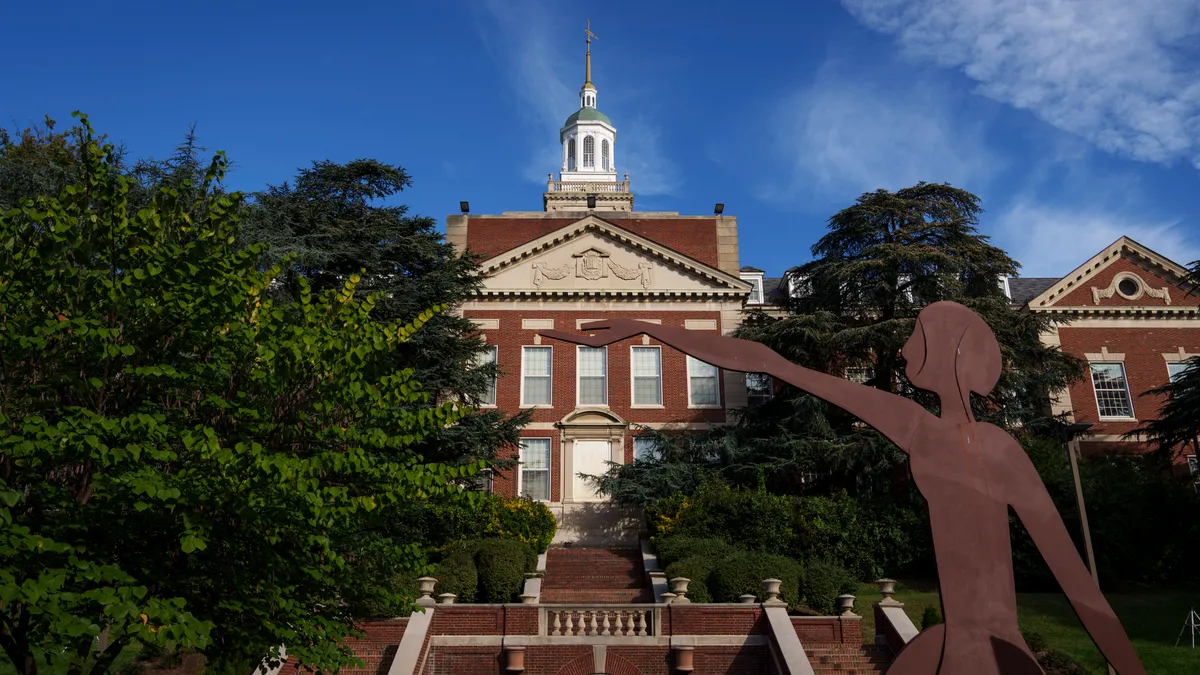Dive Brief:
- One person made a majority of the bomb threats against historically Black colleges and universities earlier this year, according to the FBI.
- The U.S. Department of Justice identified the individual as a juvenile Monday, saying it believes him to be behind racially motivated threats of violence sent to roughly 50 colleges from Jan. 4 to Feb. 1.
- Due to limitations on charging minors, the suspect will not be charged with federal crimes. The FBI is working with state authorities to charge the suspect appropriately, the agency's director, Christopher Wray, said during congressional testimony Tuesday.
Dive Insight:
Dozens of HBCUs incurred bomb threats over the past year, disrupting operations and diminishing the sense of safety on campus.
“The psychological impact cannot be overstated,” David Wilson, president of Morgan State University, told Congress in February. “You wouldn’t believe how taxed our mental health resources have been.”
Morgan State, in Baltimore, was one of at least 18 HBCUs that received threats on the first day of Black History Month, prompting leaders to postpone classes and lock down campuses.
HBCU leaders expressed frustration as months dragged on without arrests. They also objected to what they saw as insufficient communication from investigators.
Federal investigators previously identified six minors who were suspected of making the threats. Up until now, the FBI had not indicated any arrests had been made.
Although age precludes the suspect from being charged with federal crimes for the threats made against the HBCUs, Wray said the FBI thinks state authorities can stop him from criminal acts.
"We have worked with state prosecutors to ensure that that individual is charged under various other state offenses, which will ensure some level of restrictions and monitoring and disruption of his criminal behavior," Wray said Tuesday during a wide-ranging hearing on terrorist threats before the House Committee on Homeland Security.
The FBI is still working to find who is responsible for the threats against HBCUs that took place after Feb. 1.
"It's still very much ongoing," Wray said. "We recognize the fear and anger that this quite rightly caused in those communities."













